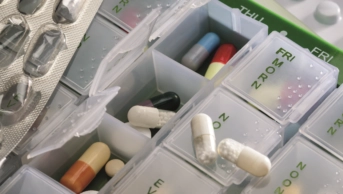
Diabetes UK
A spate of cases of acidosis that sparked a warning in the United States has prompted the European Medicines Agency (EMA) to review incidences of potentially life-threatening ketoacidosis linked to drugs used to treat type 2 diabetes.
The EMA is looking for any reported cases of the condition in patients using sodium-glucose co-transporter-2 (SGLT2) inhibitors.
The review will focus on dapagliflozin (Forxiga), canagliflozin (Invokana), empagliflozin (Jardiance), canagliflozin/metformin (Vokanamet) and dapagliflozin/metformin (Xigduo). These do not currently have a side effect warning about ketoacidosis, which occurs when the body produces high levels of blood acids or ketones.
Diabetic ketoacidosis (DKA) usually develops when insulin levels are too low or during prolonged fasting. The cases reported to the FDA were not typical DKA because blood sugar levels in the patients were only slightly increased compared to typical DKA.
SGLT2 inhibitors work by increasing urinary glucose excretion and are licensed for use in type 2 diabetes as monotherapy, if metformin is inappropriate, or in combination with insulin or other antidiabetic drugs when existing treatments fail to achieve adequate glycaemic control.
The EMA’s review follows the warning issued on 15 May 2015 by the US Food and Drug Administration advising type 2 diabetic patients about potential for associated risk of ketoacidosis and the symptoms they should look out for; breathing difficulty, nausea, vomiting, abdominal pain, confusion and unusual fatigue or sleepiness.
The FDA’s adverse reporting system recorded 20 cases of acidosis reported as diabetic ketoacidosis, ketoacidosis or ketosis in patients treated with the drugs between March 2013 and last June.
In a statement, the EMA confirmed it was assessing all reported cases of ketoacidosis and will consider whether any regulatory action is needed.
It said patients with concerns about their medicines should consult their doctor but they should continue treatment in the meantime. This advice was reiterated by the UK regulator, the Medicines and Healthcare products Regulatory Agency.
Simon O’Neill, director of health intelligence at Diabetes UK, said: “It is important that people with diabetes do not stop taking their medication without consulting their doctor. However, patients should consult their doctor if their blood glucose levels rise to a high level or if they feel unwell.”


